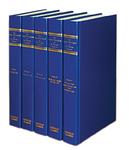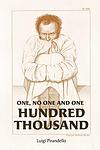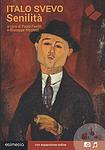The Greatest Czech, Italian Books of All Time
Click to learn how this list is calculated.
This list represents a comprehensive and trusted collection of the greatest books. Developed through a specialized algorithm, it brings together 300 'best of' book lists to form a definitive guide to the world's most acclaimed books. For those interested in how these books are chosen, additional details can be found on the rankings page.
Genres
Countries
Date Range
Reading Statistics
Click the button below to see how many of these books you've read!
Download
If you're interested in downloading this list as a CSV file for use in a spreadsheet application, you can easily do so by clicking the button below. Please note that to ensure a manageable file size and faster download, the CSV will include details for only the first 500 books.
Download-
26. The Moon and the Bonfires by Cesare Pavese
The story follows a man who, after making a fortune in America, returns to his small hometown in Italy after World War II. He finds the place significantly changed, with many of his old friends either dead or drastically different. As he tries to reconcile his memories with the new reality, he also grapples with his own identity and the impact of the war on his home. The narrative explores themes of change, identity, and the lasting effects of war.
-
27. The Book of Laughter and Forgetting by Milan Kundera
This novel is a blend of fiction, autobiography, and philosophical musings that explores the nature of forgetting, the power of laughter, and the struggle for personal and political freedom. Set against the backdrop of the political turmoil in Czechoslovakia in the 20th century, it follows the interconnected stories of various characters, including a man who is expelled from the Communist Party, a young woman in love with a man whose father was a political prisoner, and a couple who flee to America. Throughout, the book delves into the ways in which personal and collective memories shape identity and history.
-
28. If Not Now, When? by Primo Levi
This novel follows a band of Jewish partisans behind German lines during World War II. They are a diverse group from different countries and social backgrounds, all brought together by the common goal of sabotaging the Nazi war effort and surviving the Holocaust. The narrative explores their various experiences, the challenges they face, their acts of resistance, and their hopes for a future free from oppression. The title reflects the urgent necessity of their mission and their determination to fight back against their persecutors.
-
29. Complete Poems of Giacomo Leopardi by Giacomo Leopardi
This book is a comprehensive collection of the poetic works of a renowned Italian poet. The poems cover a wide range of themes, from love and nature to philosophy and social issues, showcasing the poet's profound understanding of human nature and the world. The collection also includes his celebrated "Canti" and other lesser-known works, all presented in their original Italian language, making it a valuable resource for those interested in Italian literature and culture.
-
30. The Periodic Table by Primo Levi
"The Periodic Table" is a collection of short stories that use elements of the periodic table as metaphors to explore the author's experiences as a Jewish-Italian chemist before, during, and after World War II. Each chapter is named after a chemical element, reflecting its significant role in the story. The work provides deep insights into the human condition and the power of science, while also serving as a poignant memoir of survival during the Holocaust.
-
31. Lives of the Artists by Giorgio Vasari
"Lives of the Artists" is a comprehensive collection of biographies of the most significant Italian artists from the 13th to the 16th centuries. The book provides a detailed overview of the artists' lives, their works, and their contributions to the art world. It includes the biographies of renowned artists like Leonardo da Vinci, Michelangelo, and Raphael, among others. The author's personal acquaintance with some of these artists lends a unique perspective, making the book a valuable historical document.
-
32. Christ Stopped at Eboli: The Story of a Year by Carlo Levi
The book is a memoir about the author's year of exile in a remote region of southern Italy during the fascist regime. It depicts the harsh living conditions, poverty, and backwardness of the area, where the peasants' lives are ruled by superstition and tradition. Despite the difficulties, the author finds beauty and dignity in the people and their way of life, and he paints a vivid picture of their culture, beliefs, and struggles. The title refers to the locals' belief that they have been forgotten by modernity and even by God.
-
33. I Malavoglia by Giovanni Verga
"I Malavoglia" is a tragic tale of a poor Sicilian family who struggles to maintain their dignity and values in the face of poverty, death, and societal pressure. The family's patriarch is determined to keep their ancestral home and to improve their lot through hard work and sacrifice. However, their efforts are thwarted by a series of unfortunate events, including the loss of their fishing boat, the death of family members, and the dishonor of their only daughter. Despite these hardships, the family perseveres, embodying the resilience and determination of the Sicilian people.
-
34. My Brilliant Friend by Elena Ferrante
This novel tells the story of two friends, Elena and Lila, growing up in a poor neighborhood in Naples, Italy in the 1950s. Their intense, complicated friendship is marked by competition, mutual respect, and deep affection. As they navigate the challenges of adolescence, including family drama, academic struggles, and romantic entanglements, their bond is tested and transformed. The narrative explores themes of female friendship, social class, education, and the struggle for personal autonomy in a patriarchal society.
-
35. Summa Theologica by Thomas Aquinas
This comprehensive text is a seminal work in the field of theology, written by a prominent medieval philosopher and theologian. The book is structured in a question-and-answer format, tackling complex philosophical and theological issues such as the existence of God, the nature of man, the purpose of life, and the intricacies of morality and ethics. It is one of the most influential works in Western thought, particularly in Christian theology and philosophy, and continues to be a vital reference in these fields.
-
36. Danube by Claudio Magris
This literary work is a rich tapestry that combines travelogue, history, and cultural analysis, following the journey of the river Danube from its sources in the heart of Europe to its delta at the Black Sea. As the narrative meanders through various countries, it delves into the complex history and diversity of the regions along the riverbanks, reflecting on the interplay of different cultures, languages, and peoples. The book is a contemplative exploration of the European spirit, examining the river as both a physical and metaphorical conduit through which ideas and influences have flowed, shaping the continent's past and present.
-
37. The Joke by Milan Kundera
"The Joke" follows the life of Ludvik Jahn, a man expelled from the Czechoslovak Communist Party, his university, and the army for a harmless joke he sends in a postcard to a girlfriend. The narrative explores his life before, during, and after his punishment, and his attempts to exact revenge on those who wronged him. Set against the backdrop of the Prague Spring and the Soviet Invasion, the novel delves into the themes of political satire, the absurdity of totalitarianism, and the individual's struggle against an impersonal and oppressive system.
-
38. A Ghost at Noon by Alberto Moravia
A Ghost at Noon is a tale of a troubled marriage set against the backdrop of Rome and Capri. The story follows a screenplay writer who is struggling with his failing marriage and the production of his new film. As his wife becomes infatuated with their young guide in Capri, the writer becomes increasingly paranoid and jealous, ultimately leading to the collapse of their relationship. The narrative parallels the story of Homer's Odyssey, which the protagonist is adapting for the screen, adding another layer of complexity to the story.
-
39. Kaputt by Curzio Malaparte
"Kaputt" is a semi-autobiographical novel that portrays the bleak and disturbing experiences of the author during World War II. The narrative is set in Eastern Europe and offers a vivid depiction of the war's atrocities, including the Holocaust, as seen through the eyes of a war correspondent. The book is known for its surreal and grotesque imagery, combined with the author's sharp and cynical observations of the war's impact on humanity.
-
40. The Adventures Of Pinocchio by Carlo Collodi
"The Adventures of Pinocchio" is a classic children's novel that follows the mischievous adventures of a wooden puppet named Pinocchio. As he strives to become a real boy, Pinocchio encounters a series of trials and temptations, learning valuable life lessons along the way. From encounters with talking animals to being swallowed by a giant fish, Pinocchio's journey is filled with humor, excitement, and moral dilemmas. With themes of honesty, bravery, and the consequences of one's actions, this timeless tale captivates readers of all ages.
-
41. War with the Newts by Karel Čapek
The novel is a satirical science fiction tale that explores the discovery of a species of intelligent giant newts. When humans realise they can exploit these creatures for economic gain, they are enslaved and used for labor and military purposes. The newts ultimately rebel, leading to a global war. The book serves as a critique of various political, economic and ideological systems, including colonialism, capitalism and fascism.
-
42. To Each His Own by Leonardo Sciascia
"To Each His Own" is a mystery novel that follows a professor in a small Sicilian town who becomes obsessed with solving a double murder after receiving an anonymous letter. As he delves deeper into the investigation, he uncovers a web of corruption and deceit that reaches to the highest levels of power in his town. Despite his best efforts to bring the truth to light, he finds himself in danger as those involved in the murders will stop at nothing to keep their secrets hidden.
-
43. The Time of Indifference by Alberto Moravia
This novel explores the dynamics of an upper-middle-class Italian family facing financial ruin. The story focuses on the emotional indifference and moral decay among family members, as they engage in affairs and manipulative behavior to secure their social status. As the family's fortunes dwindle, their lack of empathy and moral integrity becomes increasingly evident, offering a critique of bourgeois values and the corrosive effects of apathy and materialism.
-
44. One, No One and One Hundred Thousand by Luigi Pirandello
The book tells the story of a man who has his identity shattered when his wife casually notes that his nose tilts to the right, something he had never noticed before. This seemingly insignificant comment leads him into an obsessive quest to understand how he is perceived by others, and he gradually loses his sense of self as he fragments into a multitude of characters. The protagonist's existential crisis intensifies as he realizes that everyone he meets perceives him differently, leading him to question his own existence and ultimately, his sanity.
-
45. Closely Watched Trains by Bohumil Hrabal
"Closely Watched Trains" is a darkly humorous tale set in Nazi-occupied Czechoslovakia during World War II. It follows the life of a young, inexperienced railway worker who is struggling with his sexual awakening while dealing with the harsh realities of war. The novel is a poignant exploration of the absurdity of life, the tragicomedy of human existence, and the power of ordinary people to resist oppression.
-
46. Senilità by Italo Svevo
"Senilità" is a psychological novel that follows the life of a middle-aged man, Emilio Brentani, who falls in love with a younger woman, Angiolina, who manipulates and betrays him. Emilio's obsession with Angiolina leads him into a downward spiral of self-destruction, as he grapples with feelings of jealousy, paranoia, and self-loathing. The novel explores themes of aging, loneliness, and the human condition in modern society.
-
47. A Violent Life by Pier Paolo Pasolini
"A Violent Life" explores the journey of a young man from the slums of Rome who becomes entangled in the world of crime. As he navigates through this violent and chaotic life, he is confronted with the harsh realities of poverty, injustice, and the struggle for survival. The narrative provides a stark and unflinching examination of the underbelly of Italian society, revealing the deep-seated corruption and systemic inequality that pervades it. The protagonist's life is a testament to the destructive cycle of violence and despair that traps the marginalized and underprivileged.
-
48. The Drowned and the Saved by Primo Levi
This book is a deeply moving exploration of the Holocaust, written by a survivor. It delves into the horrifying experiences at Auschwitz, examining the psychological impact on the prisoners, the brutal behavior of the guards, and the complex moral dilemmas faced by both. The author also discusses the concept of memory and its unreliability, especially in the context of such traumatic events, and analyzes the ways in which the Holocaust has been represented and remembered in society. The book serves as a profound meditation on the human condition under extreme circumstances.
-
49. Silk by Alessandro Baricco
"Silk" is a historical fiction novel that tells the story of a 19th-century French silkworm merchant who travels to Japan for business. During his travels, he becomes enamored with a mysterious woman. His unrequited love for her haunts him for the rest of his life, even as he returns to France and continues his life there. The novel explores themes of love, longing, and the profound impact that brief encounters can have on one's life.
-
50. I Served The King Of England by Bohumil Hrabal
"I Served The King Of England" is a captivating novel that follows the life of a young Czech waiter named Ditie, who dreams of becoming a millionaire and serving the highest-ranking clientele. Set against the backdrop of World War II and the Communist regime, the story takes readers on a journey through Ditie's experiences in various hotels and restaurants, his encounters with eccentric characters, and his pursuit of love and success. With humor, wit, and a touch of satire, the book explores themes of ambition, identity, and the impact of historical events on an individual's life.
Reading Statistics
Click the button below to see how many of these books you've read!
Download
If you're interested in downloading this list as a CSV file for use in a spreadsheet application, you can easily do so by clicking the button below. Please note that to ensure a manageable file size and faster download, the CSV will include details for only the first 500 books.
Download























